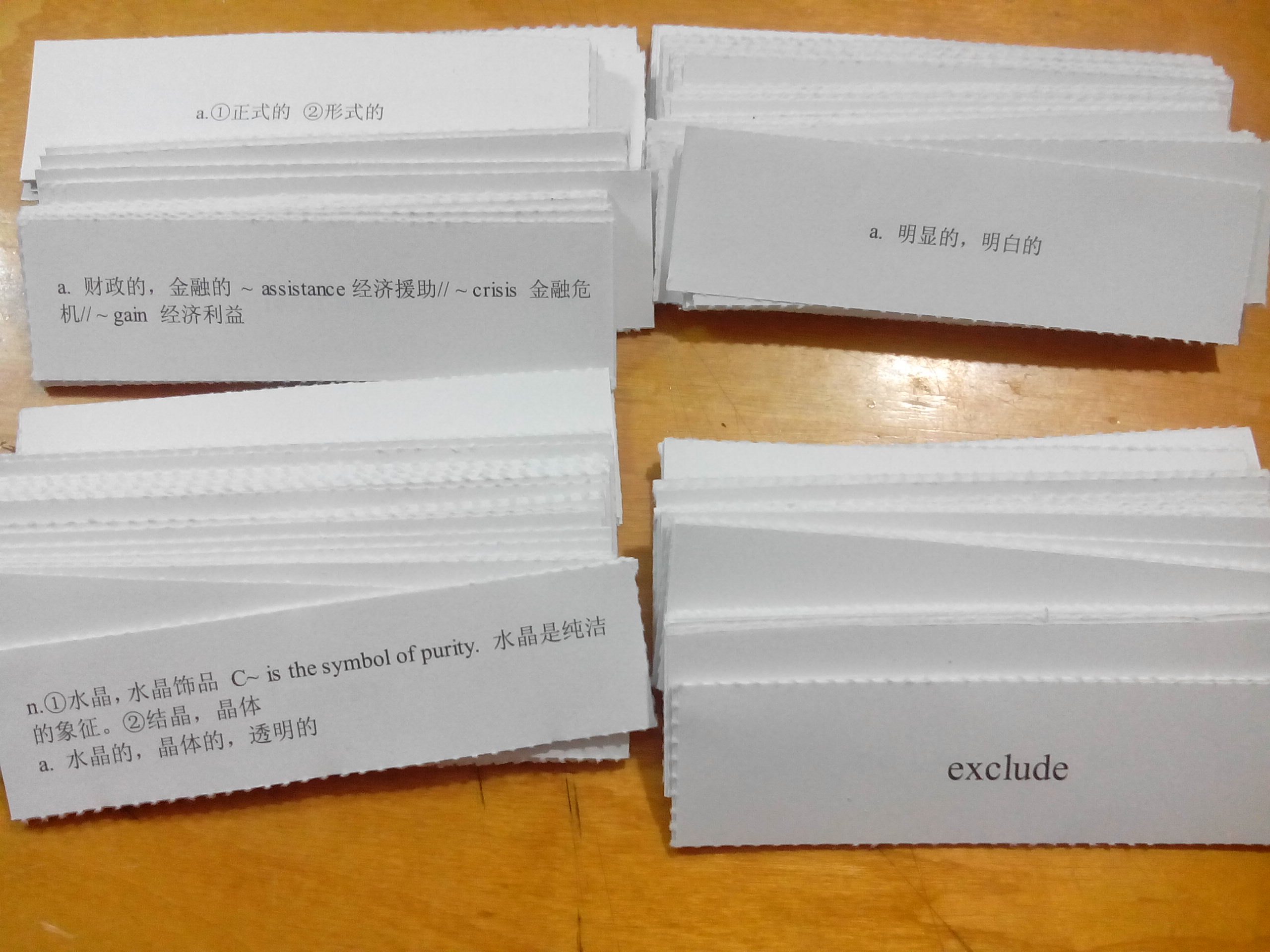 返回
教育头条
返回
教育头条

基础语法之分词的时态和语态 考研英语学习
过去分词可以表示“被动”和“完成”等意义,因此没有时态和语态方面的形式变化。下面小编来谈一下现在分词的时态和语态。
1、现在分词的完成式(having 过去分词)表示的动作发生在谓语动词所表示的动作之前或两个动作在时间上有一定的间隔。
例如:
Having written the letter, John went to the post office.
(=After he had written the letter, John went to the post office.
约翰写完信后,就去邮局了。
Having lived in Beijing for years, Lao Wang knows the city quite well.
(=As he has lived in Beijing for years, Lao Wang knows the city quite well.)
老王在北京住了多年,所以对这个城市很熟悉。
Having drunk two glasses of water, Xiao Ma felt a little better.
(=After he had drunk two glasses of water Xiao Ma felt a little better.)
小马喝了两杯水,感觉好一些了。

一般式和完成式现在分词都可以表示先后接连发生的动作。在可能引起误解的场合应该用完成式现在分词表示先发生的动作。例如:
Opening the drawer, he took out his wallet.
(=He opened the drawer and took out his wallet.)
他打开抽屉,拿出钱包。
Coming into the room, he put down his bag.
(=he came into the room and put down his bag.)
他走进房间,放下提包。
Having brushed his teeth, Mr. Brown came downstairs for breakfast.
先生刷过牙,就下楼来吃早饭。
(此句如写成:Brushing his teeth, Mr. Brown came downstairs for breakfast.可能指“边刷牙,边下楼’。)
2、现在分词的被动语态(being 过去分词)通常表示“正在被…”的意思。如强调现在分词表示的动作发生在谓语动词所表示的动作之前时,可用现在分词被动语态的完成式(having been 过去分词)。
例如:
The bridge being built will be completed next month. 正在修建的那座桥将于下月完成。
Having been kept out of the room about half an hour for his returning late, Tom was let in. 汤姆回来晚了,所以被关在门外半小时左右才让他进去。
1、现在分词的完成式(having 过去分词)表示的动作发生在谓语动词所表示的动作之前或两个动作在时间上有一定的间隔。
例如:
Having written the letter, John went to the post office.
(=After he had written the letter, John went to the post office.
约翰写完信后,就去邮局了。
Having lived in Beijing for years, Lao Wang knows the city quite well.
(=As he has lived in Beijing for years, Lao Wang knows the city quite well.)
老王在北京住了多年,所以对这个城市很熟悉。
Having drunk two glasses of water, Xiao Ma felt a little better.
(=After he had drunk two glasses of water Xiao Ma felt a little better.)
小马喝了两杯水,感觉好一些了。

一般式和完成式现在分词都可以表示先后接连发生的动作。在可能引起误解的场合应该用完成式现在分词表示先发生的动作。例如:
Opening the drawer, he took out his wallet.
(=He opened the drawer and took out his wallet.)
他打开抽屉,拿出钱包。
Coming into the room, he put down his bag.
(=he came into the room and put down his bag.)
他走进房间,放下提包。
Having brushed his teeth, Mr. Brown came downstairs for breakfast.
先生刷过牙,就下楼来吃早饭。
(此句如写成:Brushing his teeth, Mr. Brown came downstairs for breakfast.可能指“边刷牙,边下楼’。)
2、现在分词的被动语态(being 过去分词)通常表示“正在被…”的意思。如强调现在分词表示的动作发生在谓语动词所表示的动作之前时,可用现在分词被动语态的完成式(having been 过去分词)。
例如:
The bridge being built will be completed next month. 正在修建的那座桥将于下月完成。
Having been kept out of the room about half an hour for his returning late, Tom was let in. 汤姆回来晚了,所以被关在门外半小时左右才让他进去。
谢谢你,阅读了这篇文章。我是教育宝学习顾问王敏,如何选择考研英语是一个比较复杂的问题,考研英语市场鱼龙混杂,广告铺天盖地,每家机构都把自己包装的天花乱坠,如何选择一家合适的机构?这是很多人都头疼的问题,选错机构不是费钱,而是浪费时间。教育宝始终保持中立客观,累计服务200万用户,致力于连接培训机构和学员,打造可靠、高效、让人放心的一站式互联网学习服务平台,如果你不知道考研英语机构如何选,那么请让我来帮助你,加我微信:18560125702,我会根据你的实际需求,依靠8年从业经验,从海量课程中选择适合您的服务。返回教育宝头条
【免责声明】本文仅代表作者本人观点,与教育宝无关。教育宝对文中陈述、观点判断保持中立,不对所包含内容的准确性、可靠性或完整性提供任何保证。请读者仅作参考,特此声明!
相关推荐
-
复试是考研中很关键的一步在口语和听力部分有什么诀窍可以保证高分
考研英语 2018年08月15日 16:55:44 -
考研英语 2018年08月22日 00:53:16
-
考研英语 2018年09月19日 09:57:04
-
雅思阅读Global Warming in New Zealand真题讲解
考研英语 2018年09月19日 09:57:08 -
考研英语 2018年09月19日 13:41:54





